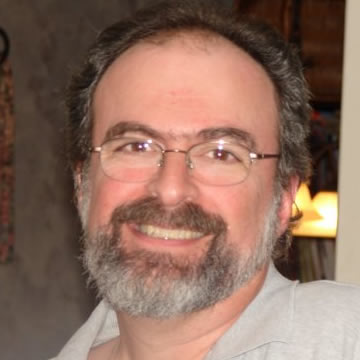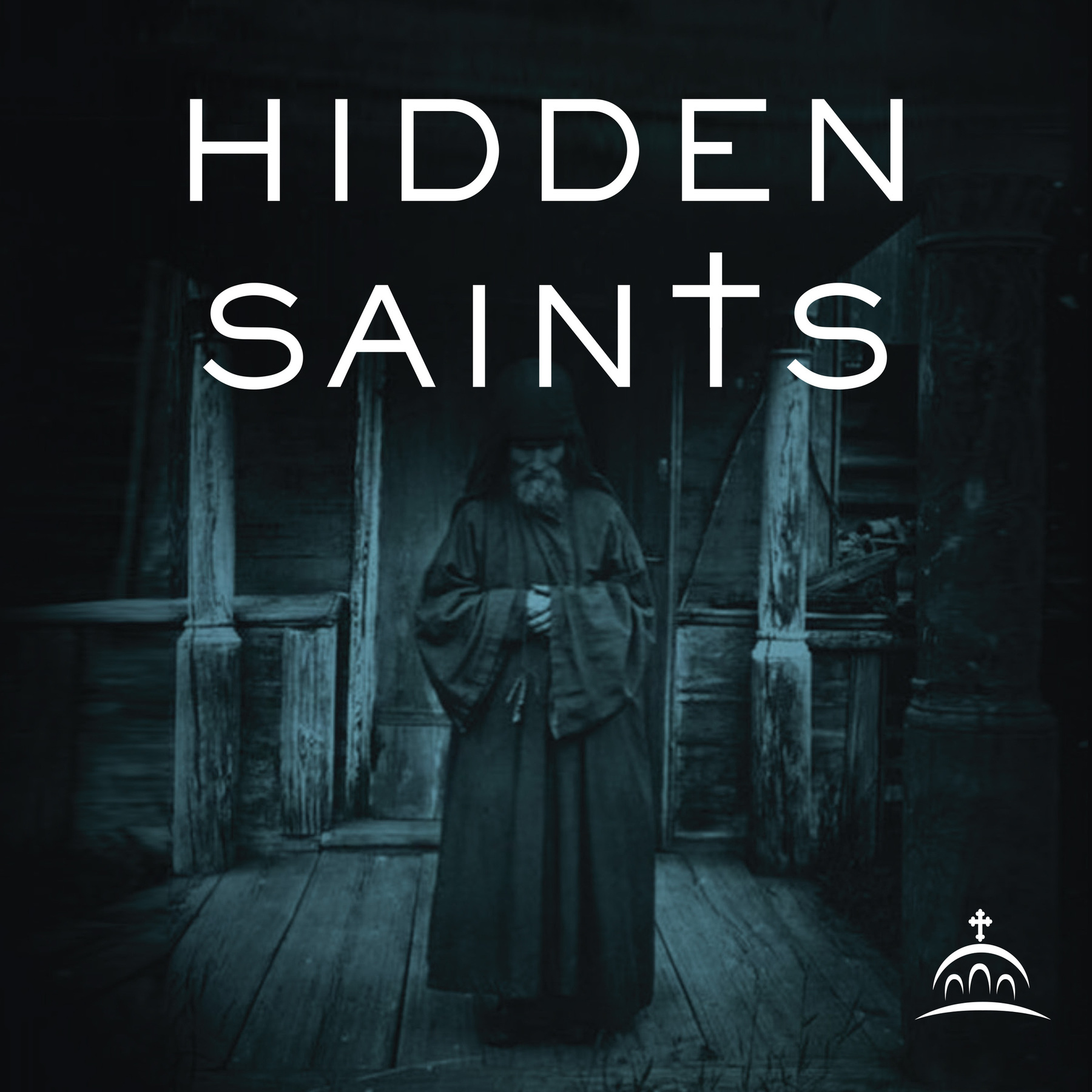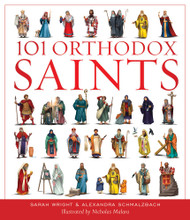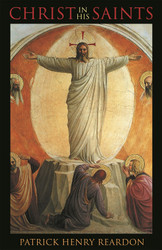
Saint of the Day
Daily Orthodox Saints
The Saint of the Day briefly tells the story of one of our venerable Saints we are commemorating for each day. It is heard eight times daily Monday—Friday, and is also available as a podcast. Our reader is a professional actor and an ordained Deacon in the Orthodox Church, Dn. Jerome Atherholt.
Support podcasts like this and more!
Donate Now
Monday, February 16, 2026
Martyrs Pamphilius and those with him, at Caesarea in Palestine (308)
These twelve holy Martyrs suffered in the reign of Diocletian.
"The first of these, Pamphilius, was priest in the church at Caesarea in Palestine; a learned and devout man, he corrected the mistakes of various copiers in the text of the New Testament. He himself copied this saving Book and gave it to any who desired it. The second was a deacon, Valentine, old in years and white with wisdom. He was a great expert in the Holy Scriptures, knowing them by heart. The third was Paul, a respected and eminent man, who had on a previous occasion been cast into the fire for the sake of Christ. With them were five Egyptians, brothers both in blood and soul, who were returning to their native land from serving a sentence in the mines of Cilicia. As they reached the gate of the town of Caesarea they said that they were Christians, and were therefore brought to trial. When asked their names, they replied: 'We have cast away the pagan names given us by our mother, and are called Elias, Isaiah, Jeremiah, Samuel and Daniel.' when asked where they were from, they replied: 'From Jerusalem that is above.' They were all beheaded, and a young man called Porphyrius, who had searched for their bodies to give them burial, suffered soon afterwards. Him they burned. An officer, Seleucus, who had come up to the martyrs and embraced them before the sword descended on their heads, was also burned, and an old man, Theodulus, a servant of the Roman judge, who had embraced one of the martyrs while they were under escort. Lastly Julian, who had kissed the dead bodies of the martyrs and honoured them, followed them in death. So they exchanged the small for the greater, the tawdry for the precious and death for immortality, and went to the Lord in 308." (Prologue)
The Synaxarion concludes, "After the martyrdom of Pamphilius, the leader of the glorious cohort, the impious governor gave orders that his body and those of his companions should be left where they lay as food for carnivorous animals. However by God's Providence, no animal came near their holy relics, which the Christians were able to lay to rest with due honour." The account of these Martyrs was written by Eusebius of Caeserea, Pamphilius' disciple.
Sunday, February 15, 2026
Holy Apostle Onesimos (~109)
He was a Phrygian by birth, a slave of Philemon, to whom the Apostle Paul addressed his epistle. Onesimos escaped from Philemon and fled to Rome, where he was converted to the Faith by St Paul. St Paul sent him back to his master, who at St Paul's urging gave him his freedom. He served the Church for many years before dying a martyr, beaten to death with clubs.
Saint Onesimos is also commemorated on November 22, with Sts Philemon, Archippus and Aphia; and on January 4 at the Synaxis of the Seventy Disciples. Our Venerable Father Dalmatius of Siberia (1697)
Saint Dalmatius is venerated as a pioneer of the movement that took many ascetics to dwell in the wilderness of Siberia, establishing a new company of Desert Fathers and causing the Russian Far North to be called the 'Northern Thebaid.' He was born in Tobolsk and reared in piety by his family, recently-converted Tatars. When grown, he entered the imperial army as a Cossack and served with such distinction that the Tsar awarded him a noble title. He married and lived in Tobolsk in comfort and prosperity. One day — after the destruction of Tobolsk in a great fire in 1643 — struck by a realization of the vanity of worldly things, he left family, wealth and property and went to a monastery in the Ural Mountains, taking with him only an icon of the Dormition of the Theotokos.
He was tonsured a monk with the name of Dalmatius, and devoted himself to prayer and ascesis with such fervor that, a short time later, the brethren elected him Abbot. Fearing pride and fleeing honor, Dalmatius fled with his icon of the Theotokos to a remote cave, where he lived a life of silence and continual prayer. His presence did not long remain secret in that sparsely-settled region, and soon Christians were coming from far and wide to ask his prayer and counsel; many pagans came to him for holy Baptism. Soon his habitation became too small for those who had chosen to stay as his disciples, and the Saint received a blessing from the Bishop of Tobolsk to build a wooden chapel and some cells. This was the beginning of the great Monastery of the Dormition (also called the Monastery of St Dalmatius).
Over the years the brethren endured many tribulations. Once the Tatar Prince of the region, provoked by false rumors, planned to destroy the monastery and kill all the monks. The night before the attack, the holy Mother of God appeared to the prince in resplendent clothes, holding a flaming sword in one hand and a scourge in the other. She forbade the Prince to harm the monastery or the brethren, and commanded him to give them a permanent concession over the region. Convinced by this vision, the Prince made peace with the monks and became the Monastery's protector, though he was a Muslim.
In the succeeding years the Monastery was repeatedly burned down by the fierce pagan tribes which inhabited the area; once all the monks except St Dalmatius himself were butchered, but always the monastery was rebuilt. The Saint reposed in peace in 1697, and was succeeded as abbot by his own son Isaac, who built a stone shrine at the Monastery to house the relics of the Saint and the icon of the Mother of God which he had kept with him throughout his monastic life.
Saturday, February 14, 2026
Our Holy Father Auxentius (470)
He was of Persian origin, born in Syria. As a young man, he distinguished himself as a member of the court of the Emperor Theodosius the Younger. Seeing the vanity of the world's honors and pleasures, he became a monk in Constantinople; but when the people began to praise his holiness, he fled to Mount Oxeia near Chalcedon, which later became known as Auxentius' Mountain. There he built a small hut and lived in reclusion; but in time he was discovered by some shepherds, and the faithful began to come in increasing numbers for his teaching, blessing, prayers and healing. He performed countless miracles, but such was his humility that he always sought to avoid their being attributed to him. When he was asked to pray for someone's healing, he would try to refuse, saying "I too am a sinful man." But, when he was prevailed on by the pleas of the people, he would call on all of them to pray together for the healing; or he would remind them that God would give according to their faith; or he would say to the sick person "The Lord Jesus Christ heals you." When the Emperor Marcian summoned the Fourth Ecumenical Council to Chalcedon, he ordered that the hermit join the assembly of holy Fathers. Auxentius refused, saying that doctrinal teaching was the province of bishops, not monks. The Emperor's envoys took him by force. He was greeted with honor by the Emperor, and affirmed all the decisions of the Council.
He never returned to Mount Oxeia, but settled in an even wilder and more remote spot on Mount Skopa, which later came to be called Mount St Auxentius. His disciples built him a tiny wooden hut with one small window through which he could converse with his steady stream of visitors. He reposed in peace in 470. A great crowd gathered for his funeral, and his holy relics were taken into the care of a women's monastery whose spiritual Father he had been.
Mount St Auxentius soon became a center of hesychastic life, with seven monasteries.
Friday, February 13, 2026
St Martinian, monk, of Caesarea in Palestine (422) - February 13th
"The life of this saint is wonderful beyond measure and is worth reading in full. What did he not endure to fulfil the Law of God? At the age of eighteen, he went off into a mountain in Cappadocia called the Ark and spent 25 years in fasting, vigils and prayer, and struggling with manifold temptations. When a woman came to tempt him and he saw that he would fall into sin with her, he leapt barefoot into the fire and stood in it until the pain brought forth tears from his eyes and he had killed all lust within himself. When other temptations arose, he fled to a lonely rock in the sea and lived there. When, though, in a shipwreck, a woman swam to the rock, he leapt into the sea intending to drown himself. But a dolphin took him upon its back and brought him, by God's providence, to the shore. He then decided to make nowhere his permanent home but to travel incessantly. Thus he passed through 164 towns in two years, exhorting and advising the people. He finally arrived in Athens, where he died in 422." (Prologue)
Thursday, February 12, 2026
St. Alexis, metropolitan of Moscow and wonder-worker of all Russia (1378)
He was born early in the 14th century to a family of court dignitaries in Moscow. Despite a fine education, he was not drawn to worldly success and became a monk at the age of twenty. In time Alexis was consecrated Bishop of Vladimir, then Metropolitan of Moscow, at that time the highest rank in the Russian church (which was still under the Patriarchate of Constantinople). Russia was then under the cruel domination of the Tatars. Saint Alexis traveled twice to the Golden Horde, where the Tatar Khan kept court. On his first visit (1359), he healed the Khan's wife of a blindness which had afflicted her for three years — a miracle that did much to soften the Tatars' treatment of their Russian vassals, and to preserve the liberty of the Church.
His ceaseless labors in the world did not deprive the Saint of his love for monasticism: he conferred with holy monks at every opportunity, and founded many new monasteries. As he neared the end of his life he tried without success to persuade his friend St Sergius of Radonezh (September 25) to succeed him. He reposed in peace in 1378. His incorrupt relics are venerated in the Cathedral of the Theophany in Moscow.
 Dn. Jerome Atherholt
Dn. Jerome Atherholt






